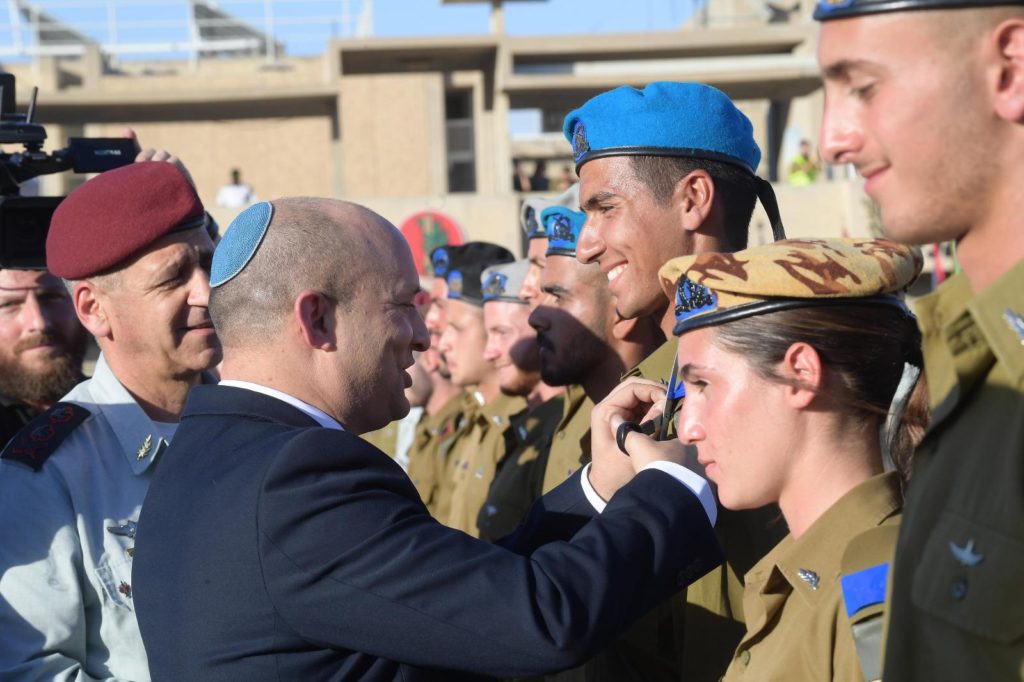
After another weekend of arson balloon attacks from the Gaza Strip and IDF strikes on Hamas targets in response, Israeli Prime Minister Naftali Bennett issued a stern warning to the terrorists leading Gaza. “I reiterate: Things have changed,” said Bennett on Sunday while discussing the IDF response to more arson balloons.
“Israel is interested in quiet and we have no interest in harming the residents of Gaza; however, violence, balloons, marches and harassment will be met with a sharp response.”
Bennett’s strong words followed back-to-back days of arson balloon attacks from Gaza. After an IDF airstrike on Hamas sites in response to the incendiary launch on Friday, the IDF responded again on Saturday, hitting “a weapons manufacturing site and a rocket launcher belonging to Hamas,” according to the IDF Twitter feed.
Said the IDF post, “The IDF will continue to respond firmly to all terror attempts emanating from the Gaza Strip.”
The simmering conflict comes a little over a month after the last major rocket escalation by Gaza terrorists against Israel, which ended with a ceasefire on May 21. However, a more comprehensive end to the fighting has yet to be achieved.
Bennett spoke with Egyptian President Abdel Fattah El-Sisi last week, with a readout of the call published by Bennett’s office stating the Egyptian leader “underscored the need to establish the ceasefire in the Gaza Strip, with the goal of improving the civil and humanitarian situation of the residents of the Strip, and noted the need to resume the diplomatic process.”
To the broader end of addressing the Gaza conflict, Bennett addressed humanitarian aid for Gaza in his Sunday comments, which were published by his office. However, given Hamas’ tendency to use Gaza aid for military buildup to attack Israel, Bennett made it clear the new aid wouldn’t be a blank check—literally or figuratively.
“We are also working on a solution that will allow humanitarian assistance to the residents of Gaza but without suitcases full of dollars. Suitcases full of dollars are something we inherited and they need to be done away with,” said Bennett.
Israel isn’t the only one concerned about Hamas coopting the humanitarian assistance for Gazans. United States Ambassador to the United Nations Linda Thomas-Greenfield told the UN Security Council on June 24 that “it is absolutely critical that Hamas cannot divert resources and assistance from the Palestinian people who need it most.”
Thomas-Greenfield, whose comments were published by the US Mission to the UN, noted it would be a group effort to get aid to those who need it—and not terrorists who would misuse it.
“We welcome the UN efforts to support relief and recovery. And we would also appreciate efforts to facilitate the flow of goods into and out of Gaza. We need a mechanism which allows authorities to mitigate any risk of diversion…. So, all of us must work and coordinate with the UN, Israelis, Palestinians, and other key actors to ensure the designated beneficiaries are the ones who actually receive international assistance. They deserve to have their immediate needs met, so that they can recover from the latest round of violence,” said the US ambassador.
As for how Israel will confront fresh violence from Hamas, it does not appear that a ground operation in Gaza is currently on the table. In Bennett’s comments at an IDF officer’s graduation ceremony on Thursday, he highlighted the importance of troops on the ground, but seemed to intentionally avoid mentioning Gaza in his published remarks. Instead, he highlighted the ground fighting in the Second Lebanon War in 2006, in which Bennett was a reserve infantry commander.
Despite electing not to use that as an opportunity to threaten a ground invasion to specifically stop Hamas, Bennett nonetheless sounded a warning to the enemies of Israel in general.
Said Bennett in the remarks published by his office, “Just as we do not seek out combat, so too we do not seek out ground operations. But if we think that the goals of the campaign require an operation, we will not hesitate to implement it; it will be massive and vigorous.”
(By Joshua Spurlock, www.themideastupdate.com, July 4, 2021)
